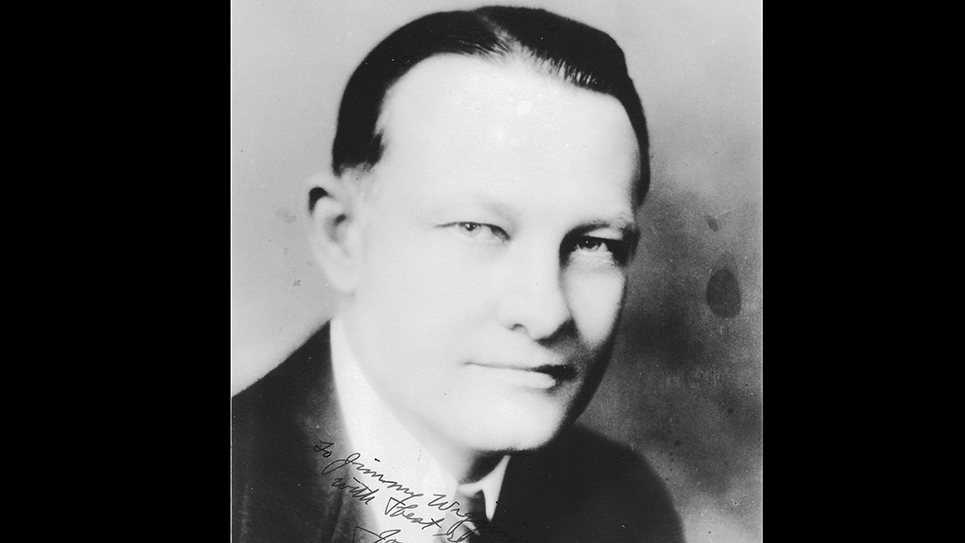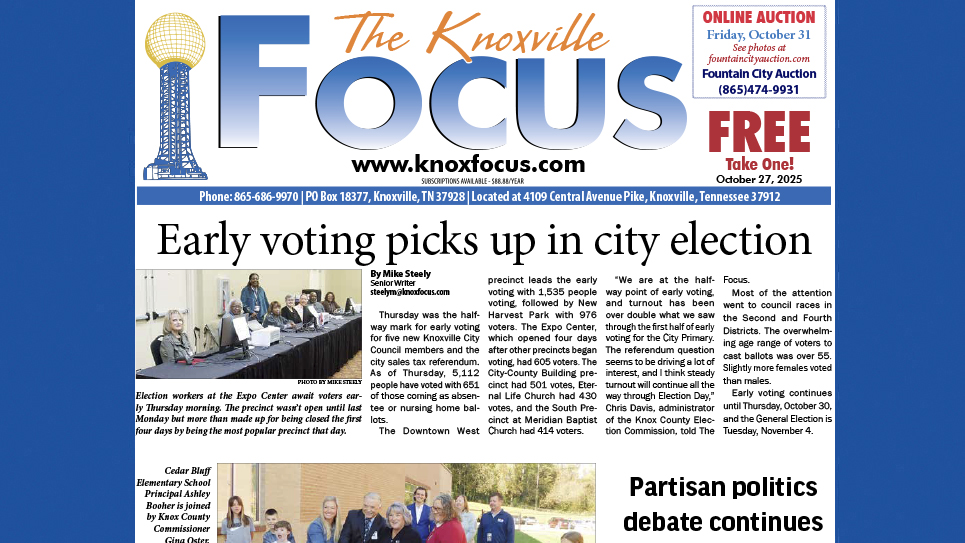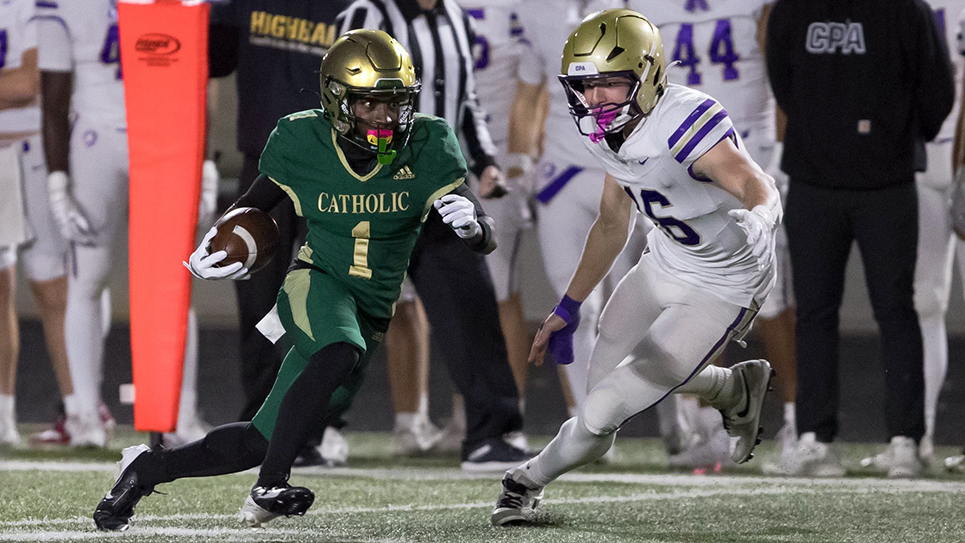Okie Orator: Joshua Bryan Lee of Oklahoma
By Ray Hill
Like every aspect of life, political careers vary. Some last for decades and things seem to come easily to some lucky folks, while others must work hard at it and fight for what they get. Other political careers flash like a meteor across the sky and burn out quickly. The political career of Joshua Bryan Lee was one of those that burned mighty hot for a time and then was extinguished unexpectedly.
According to TIME magazine, the future senator introduced himself at a church social as a college freshman with the pronouncement, “My name is Josh Lee, but I’m no joke.” In later years, Josh Lee would adopt “Bryan” as his middle name in honor of the most famous of America’s orators, William Jennings Bryan. Lee was affable and witty. Once speaking to a group of teachers, the Oklahoman stated the difference between a teacher and a politician. Lee said the difference was a teacher makes his bed and lies in it, while a politician makes his bunk and lies out of it.
While able to speak to thousands of people, Josh Lee remained something of a shy man when dealing with individuals. Josh Lee was never a good mixer, which was something of a handicap in a state like Oklahoma where politics was personal. Loyd Benefield, an attorney who served as Lee’s administrative assistant in the Senate, recalled, “He projected his personality best when speaking to a large audience. He was often not understood by individuals.”
While still a teacher, Lee became one of Oklahoma’s most popular speakers, having made a thousand speeches at churches, schools and civic meetings in the Sooner State. In 1934, the professor-turned-politician entered a race for Congress in Oklahoma’s Fifth Congressional District. Lee easily beat the incumbent, Fletcher Swank, in the primary and won quite nearly 75% of the vote in the general election. Lee didn’t seek reelection as he became a candidate for the U.S. Senate in 1936.
The Democratic primary for the United States Senate in 1936 was crowded with no less than eight candidates, including a few who were widely known and had been politically potent. Governor Ernest W. Marland, term-limited as Oklahoma’s chief executive, was making his second consecutive bid for the Democratic nomination for the U.S. Senate. Gomer Smith, a powerful orator, who had been elected to the House of Representatives in a special election, was running hard. And of course, the incumbent, although he was crippled politically, Thomas P. Gore, was seeking to return to the Senate. The remaining four candidates were minor with no expectation of winning or even drawing a significant vote.
During his last term in the United States Senate, Thomas P. Gore’s principles prohibited him from falling into line with a popular president. Senator Gore voted against several New Deal measures saying he owed the taxpayers as much consideration as he did the unemployed. That was not the view of most of the candidates avidly seeking the Democratic nomination for the U.S. Senate in Oklahoma. TIME magazine thought the primary was just a contest to see who could outdo the other in “promising handouts from the public funds.” Gomer Smith campaigned on the question of “Old Age Revolving Pensions” for the elderly. Governor Marland did little more than “sing the praises of Franklin Roosevelt” while Congressman Josh Lee ran on a “New Deal plus platform.” Lee promised “a farm for every farmer and a home for every family.”
In the 1936 primary, Congressman Josh Lee’s enthusiastic “Rover Boys” campaigned the length and breadth of the Sooner State for their former professor. Many of those same “Rover Boys” would become important leaders in Oklahoma throughout the following decades. Known for their youth and determination, the “Rover Boys” became something of a legend in the Sooner State.
Lee ran first in the primary, followed by Governor Marland. In the run-off election, Josh Lee swamped Governor Marland, winning by the greatest majority ever given a candidate in a Democratic primary in Oklahoma to that time.
Josh Lee’s GOP opponent in the general election was respectable, if not formidable. Herbert K. Hyde was a 38-year-old attorney who had been the chief assistant to former United States Senator William B. Pine. Hyde had earned fleeting fame for having successfully prosecuted the kidnappers of Charles F. Urschel, a wealthy oilman. Hyde and Lee were well acquainted, as Hyde had been one of the professor’s students. The two had similar slogans for their respective races for the United States Senate, emphasizing their humble beginnings. Lee’s was “From hoe-handle to the U.S. Senate” while Hyde ran on “From bootblack to the U.S. Senate.”
The general election campaign was anticlimactic as the student did not outdo the teacher. Quite to the contrary, as Congressman Josh Lee thrashed Herbert Hyde, winning almost 68% of the votes to Hyde’s barely 31%, with the remaining ballots distributed amongst four minor candidates. Forty-four-years-old, Josh Lee was headed to the U.S. Senate.
Once installed as Oklahoma’s junior United States senator, Joshua Bryan Lee set out to reward his “Rover Boys” with federal patronage. Senator Lee took Alfred P. Murrah to the White House to see the most important dispenser of patronage during the New Deal: President Franklin D. Roosevelt. Murrah had an interesting background; only 33 years old at the time, the youngster had arrived in Oklahoma City 18 years previously as a stowaway in a box car. Discovered by a brakeman, Murrah’s future was decided, at least in part, by his being put off the train in Oklahoma City. Murrah stayed and worked his way through high school and the state university, eventually earning a law degree. Senator Josh Lee sponsored Alfred P. Murrah for a federal judgeship, which was the reason to visit the White House. Looking over Murrah, FDR turned to Senator Lee and said, “He’s young enough. Is he liberal enough? Does he recognize the rights of the man in the street as well as the man in the skyscraper?” Evidently, Murrah was able to satisfy the president of his liberal thinking as Roosevelt nominated him for the federal judgeship. Murrah was one of Josh Lee’s “Rover Boys” and had taught the jurist at the University of Oklahoma. The federal building named for Judge Murrah was destroyed by the Oklahoma City bomber in 1995.
Lee’s ability as an orator was demonstrated repeatedly in the forum he had as a member of the United States Senate. The Oklahoman was at his best when speaking before large groups. One of the most enthusiastic audiences he had was that of the Young Democrats’ national convention in 1939. Ten thousand strong, Lee caused “pandemonium” when he cried, “Now is the time to unleash the devil dogs of democracy and set them baying upon the trail of the Wolf of Wall Street! America, now is the time to unsheathe the sword of human rights! Now is the time to raise the banner for Roosevelt for 1940!”
Senator Lee, whether it was true or not, earned a reputation amongst some for saying what President Roosevelt wanted said inside the Senate. Indeed, Josh Lee was one of the most notable and open supporters of a third term for President Roosevelt.
Extremely slow to utter a critical word about the New Deal during his six years in the United States Senate, Josh Lee tangled with the Sooner State’s governor, the rotund, redheaded, cigar-chomping Leon Phillips, over a dam site. Phillips was infuriated because the prospective dam site would inundate some $19 million (in today’s currency value) of state highways. Governor Phillips did not believe that balanced out with the expenditure of a $3 million bridge built by the Public Works Authority. Phillips growled that the PWA still owed the State of Oklahoma almost $11 million, and the governor snapped he would never permit the dam to be finished until the federal government settled its accounts with the Sooner State. Senator Lee dismissed the governor as a tool of the utility interests. Speaking on the floor of the Senate, Lee asked his colleagues who gained anything by “wrecking” the proposed dam. “The utilities gain,” Lee said, answering his own question. Lee insisted the “real issue” was “whether or not the people shall have cheap electricity.” Governor Phillips seemed to have the upper hand as he had sent in the Oklahoma National Guard. With his troops in place, Phillips resorted to the courts and won a temporary injunction. The governor barked if the court made the injunction permanent, he would withdraw the National Guard. Should the court fail to make the injunction permanent, the governor warned, he would “keep the troops on hand until the PWA puts the money on the line.”
The antagonism between the conservative governor and the liberal senator would come to a head when Lee ran for reelection in 1942. Lee’s loud and long support for a third term for FDR also came back to haunt him. The war was not going well for the Allies in 1942 and voters were restive. Republicans in the Sooner State were preparing to run their strongest possible candidate against Senator Lee; former U.S. Senator William B. Pine. Pine’s candidacy came to an end when he unexpectedly died from a heart attack in his office. Republicans scurried to find a replacement nominee and settled upon vastly wealthy oilman Edward H. Moore, who had put himself through college as a janitor and had earned a law degree before striking it rich. Seventy-one years old, Moore could self-fund his campaign and had been profoundly opposed to a third term for FDR and was a “Democrat for Willkie” in 1940. Moore campaigned as a conservative Democrat running on the Republican ticket.
To the surprise of the political class and especially Josh Lee, E. H. Moore won the general election, winning quite nearly 55% of the vote. Senator Lee was so stunned by his defeat, he remained locked inside his hotel suite following his loss for days before he could bring himself to face newsmen. Democratic Governor Leon Phillips had endorsed the candidacy of E. H. Moore. Loyd Benefield years later remembered, “His defeat for reelection never caused him to turn bitter toward people. He never had any bitterness in his heart.”
“My defeat surprised me and disappointed me some, but not bitterly,” Josh Lee confirmed to a reporter. “I left with all my ideals and faith in the democratic processes.” Although only 50 years old when he lost his reelection campaign, Josh Lee never ran for public office again.
Following the 1942 election, President Roosevelt had several defeated Democrats to look after. FDR appointed former Senator Josh Lee to the Civil Aeronautics Board to an unexpired term. Twice more Lee was reappointed to full terms on the CAB. With a Republican president in office, Lee chose to retire in December of 1955 to Oklahoma. Lee qualified for a nice pension from his federal service of 20 years.
Completing his service on the CAB, Lee commented, “It’s been interesting to blaze new trails through the sky, and that’s literally what we’ve done in the 13 years I’ve been on the Board.” Lee practiced law a bit and owned a ranch and a farm in the Sooner State.
On the occasion of his seventy-fifth birthday, more than six hundred people gathered to honor the former senator. The planners were aghast because so many people came, the party ran out of birthday cake.
For anyone who had been out of office as long as Josh Lee had, it was quite the tribute. To those gathered, Josh Lee said, “In one term in the senate, you don’t get your name attached to many bills. One of the things I can point to with pride is some of the men I recommended for office. They were outstanding.”
Plagued by illness during his last years, Josh Lee died in a Norman Hospital on August 10, 1967. His ascent to the pinnacle of Oklahoma politics was as swift as his fall.
© 2024 Ray Hill







